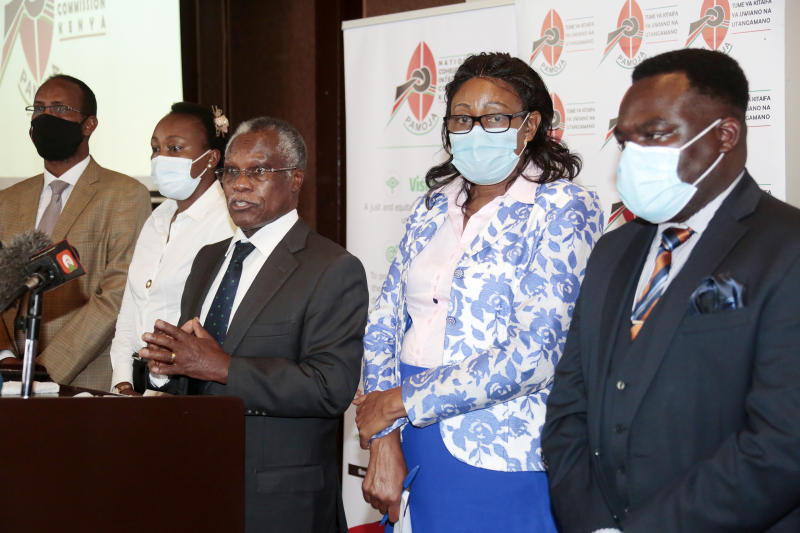×
The Standard e-Paper
Join Thousands Daily

The National Cohesion and Integration Commission bosses (from left) Abdulaziz Farah, Skitter Wambua (Commission Secretary), Dr Samuel Kobia (Chair), Dorcas Kedogo and Danvas Makori at Crown Plaza Hotel in Nairobi yesterday. [Boniface Okendo, Standard]
The government is tightening the noose on alleged perpetrators of political violence, including shaming them and eventually blocking them off electoral contests.